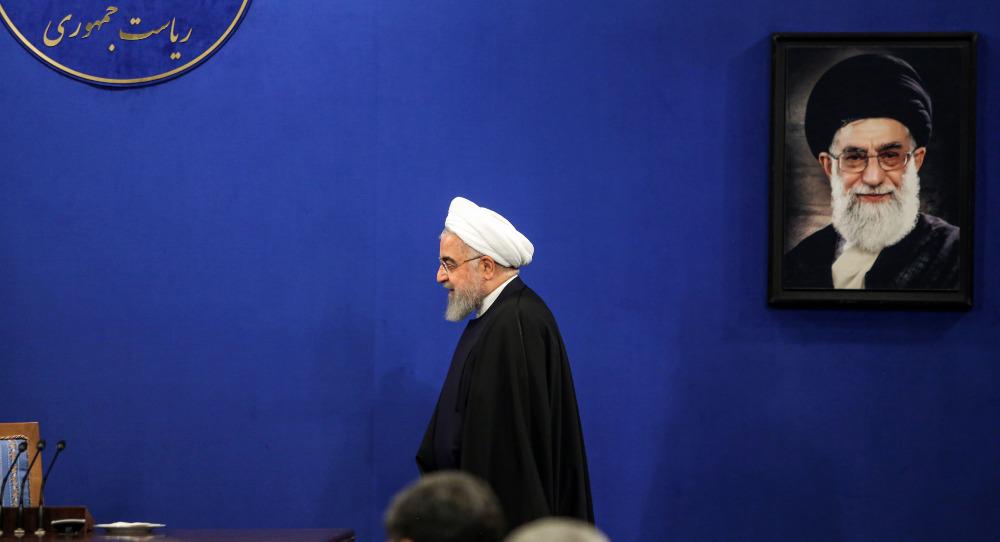As European leadership prepares for the sixteenth EU-India Summit, both sides must reckon with trade-offs in order to secure a mutually beneficial Free Trade Agreement.
Dinakar Peri
{
"authors": [
"Mark Hibbs"
],
"type": "commentary",
"blog": "Strategic Europe",
"centerAffiliationAll": "",
"centers": [
"Carnegie Endowment for International Peace",
"Carnegie Europe"
],
"collections": [
"Iranian Proliferation",
"Transatlantic Cooperation"
],
"englishNewsletterAll": "",
"nonEnglishNewsletterAll": "",
"primaryCenter": "Carnegie Endowment for International Peace",
"programAffiliation": "",
"programs": [],
"projects": [],
"regions": [
"Middle East",
"Iran",
"Asia",
"Russia",
"Europe",
"North America"
],
"topics": [
"Nuclear Policy",
"EU",
"Security"
]
}
With new concerns about Iran’s nuclear activities emerging, Russia and China could take on the role of engaging with Tehran to make it cooperate with the UN’s nuclear watchdog.
Five years after Tehran concluded a landmark nuclear agreement with foreign powers, concern about Iran’s nuclear peaceful-use credentials has resurfaced. In coming weeks, months, and beyond, Russia—and perhaps China—may be called upon to take the lead in securing Iran’s cooperation to manage this issue.
Under the Non-Proliferation Treaty (NPT), Iran is obligated to declare all its nuclear materials and activities to the International Atomic Energy Agency (IAEA). But on March 9, 2020, the IAEA told its governing board of thirty-five member states that Iran is refusing to provide access to and explanations concerning three possible nuclear sites.Architects of the 2015 Joint Comprehensive Plan of Action (JCPOA)—the Iran nuclear deal—anticipated that, should Iran balk at cooperating with the IAEA in implementing the agreement, the other parties—China, three European states, Russia, and the United States—would unite, persuade Iran to cooperate, and nip a crisis in the bud.
But after U.S. President Donald Trump in 2018 unilaterally pulled the United States out of the JCPOA and Iran responded by suspending certain of its commitments, an indefinite stalemate has taken hold. Perhaps Iran would cooperate with the IAEA if the United States returned to the nuclear deal. Whatever the answer, the IAEA cooperation expected of Iran follows from Tehran’s NPT obligations, not from the JCPOA.
The public diplomacy of IAEA board member countries suggests that a near-term resolution of this matter is unlikely: The United States has raised alarm about Iran’s lack of cooperation during board meetings, bringing Trump’s “maximum pressure” campaign against Iran to the IAEA; Russia and China instead dismiss that Iran’s refusal to cooperate has any current proliferation significance; and the EU states sitting on the board are under pressure from Brussels to help keep the JCPOA alive, implying that Europe will not squeeze Iran at least until after the 2020 U.S. presidential election.
As insurance, Iran has threatened to quit the NPT if EU states send the dispute to the UN Security Council. Such as step would be called for under the IAEA statute should Tehran ultimately refuse to cooperate. The Security Council could then consider imposing sanctions.
After the IAEA governing board also took into account the coronavirus pandemic and the possibility that Iran’s recalcitrance might have been encouraged by hardliners during the general election in February 2020, the board kicked the can down the road, taking no collective measures to pressure Iran further.
But more quiet diplomacy, not covered in ambassadors’ tweets or IAEA press briefings, is ongoing and may even point toward a resolution. Russia and China, even before the next board meeting in June 2020, may try to exert leverage on Iran for it to cooperate, encouraged by other board participants.
Because Russia has stepped up bilateral cooperation with Iran in a number of areas in recent years, it wants Tehran to cooperate with the IAEA to ensure that Iran’s nuclear behavior does not become a diplomatic liability for Moscow. Both Russia and China may incline toward what many Western board members view as minimalistic nonproliferation standards, but neither country has an interest in permitting Iran to obtain nuclear arms.
During the Cold War, Moscow, in a mutual understanding with Washington, policed Soviet client states to deter them from pursuing sensitive nuclear activities. Today, for as long as the United States remains hostile to the Islamic Republic and Russia’s interests in the Middle East and the Persian Gulf persist, IAEA board members may welcome Moscow stepping in as the custodian of Iran’s NPT bona fides.
This is also because the IAEA—partly based on Israeli intelligence suggesting Iran may not have declared all its nuclear activities—in the coming months and perhaps years may need additional assurances from Iran that its nuclear program is fully peaceful.
But very significant future Russian or Chinese engagement with Iran on nuclear verification can make sense to Europe and the United States only if Moscow and Beijing are on the same page as Western states concerning the IAEA’s authority—at a time when the global nonproliferation regime is under stress from verification challenges, resource requirements, and the absence of nuclear disarmament diplomacy.
During the Cold War, both sides agreed on how to interpret the IAEA’s legal safeguards authority. Since the 1990s, after the IAEA discovered that Iraq and North Korea concealed nuclear activities, the IAEA has guided the evolution of safeguards in a more complex and ambitious direction, and Russia and the West have diverged on some issues.
More engagement is therefore needed from the IAEA and its members to reach common safeguards understandings.
Russia appears to favor shifting some IAEA safeguards decisionmaking from the technical Secretariat to the highly political Board of Governors: In defense of its ally in Damascus, Moscow has since 2011 denounced a conclusion by the Secretariat that an installation in Syria, destroyed by an Israeli airstrike in 2007, was “very likely” an undisclosed nuclear reactor under construction.
Given this background, Western states will be cautious should Russia and/or China broker a deal to provide the IAEA access to locations in Iran. Especially if the deal’s provisions might reduce the IAEA’s verification authority or effectiveness.
Carnegie does not take institutional positions on public policy issues; the views represented herein are those of the author(s) and do not necessarily reflect the views of Carnegie, its staff, or its trustees.
As European leadership prepares for the sixteenth EU-India Summit, both sides must reckon with trade-offs in order to secure a mutually beneficial Free Trade Agreement.

Dinakar Peri
The hyper-personalized new version of global sphere-of-influence politics that Donald Trump wants will fail, as it did for Russia. In the meantime, Europe must still deal with a disruptive former ally determined to break the rules.

Thomas de Waal
2026 has started in crisis, as the actions of unpredictable leaders shape an increasingly volatile global environment. To shift from crisis response to strategic foresight, what under-the-radar issues should the EU prepare for in the coming year?

Thomas de Waal
A renewal of relations between France and Turkey is vital to strengthen European strategic autonomy. To make this détente a reality, Paris and Ankara should move beyond personal friction and jointly engage with questions of Black Sea security.

Romain Le Quiniou
Europe is designing a new model of collective security that no longer relies on the United States. For this effort to succeed, solidarity between member states that have different threat perceptions is vital.

Erik Jones